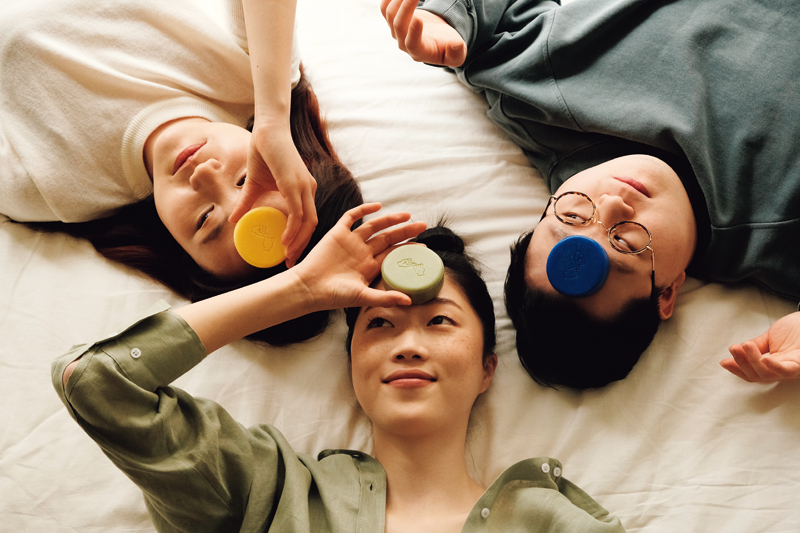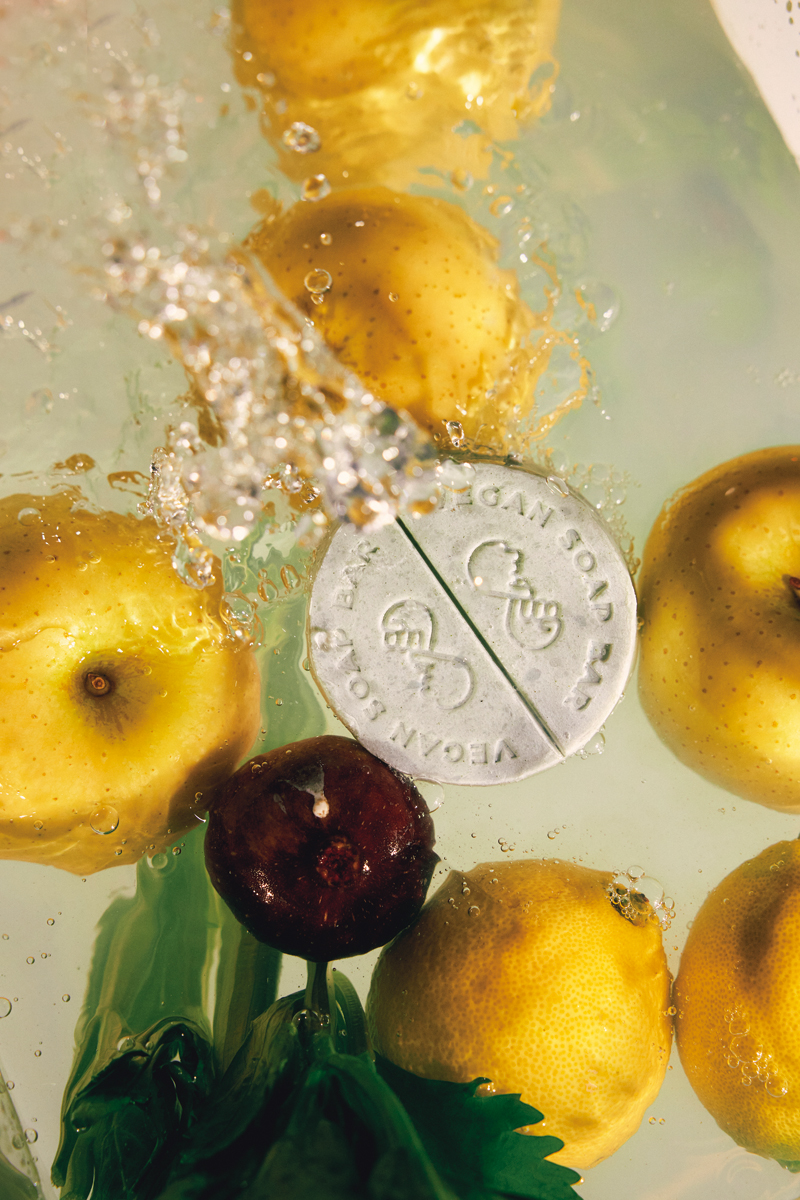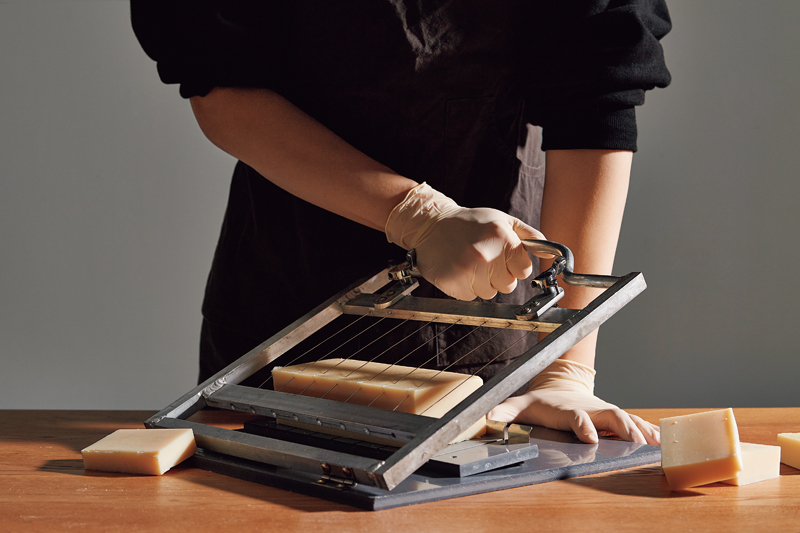Consumers are more mindful these days. They not only scrutinize the ingredients and price, but also the manufacturer’s philosophy and ethical standards, such as whether it is socially conscious and maintains a cruelty-free production chain. Donggubat Inc. meets such st
ringent criteria, fulfilling its corporate social responsibilities while making high-quality, eco-friendly products.

Donggubat’s mission is to help create a sustainable lifestyle for everyone and provide long-term employment for people with developmental disabilities. Thanks to its growing revenue, the company has been able to take on more and more new recruits.
© Donggubat Inc.
Imagine the entrance of a rural village. It is a warm and friendly scene: a large tree on a low hill, fields and paddies beside it, and a winding path. In Korean, village entrances are called donggu, and the adjacent fields donggubat. True to its name, the Donggubat company was created to be a comfortable and comforting place, especially for people with developmental disabilities.
NURTURING DREAMS
According to the Employment Status Survey of the Economically Active Population with Disabilities for the Second Half of 2023, released by the Korea Employment Agency for Persons with Disabilities, at 43.3% the employment rate of people with visual impairments was the highest among all surveyed groups, followed by those with physical disabilities (43.0%), hearing impairments (27.3%), developmental disabilities (26.2%), other disabilities (23.0%), and brain lesions (12.2%). While the average tenure of employed individuals with disabilities was 11 years, it was much shorter for those with developmental disabilities at an average duration of 4 years and 10 months. People with developmental disabilities, who show delays and abnormalities in language, cognition, motor skills, and social skills, inevitably face challenges in taking part in society. Special care and attention are required to help them adapt.
“Is there a way people with developmental disabilities can work and make money?” After pondering this question, Donggubat began to make soap. It was simple enough, involving only a small workforce and low production costs, and fortunately, the market responded well. The company not only established a system to help individuals with developmental disabilities adapt to society but also offered high-quality products that met the demands of consumers pursuing eco-friendly and vegan lifestyles.
Thanks to its continued growth, the company has been able to employ more and more people with disabilities. As of April 2024, it has approximately 130 managers and employees, including 50 with developmental disabilities. These employees undergo an in-house job competency development program and are then assigned to manufacturing and delivery duties at the factory in Hanam, a city east of Seoul in Gyeonggi Province. Setting up a factory in an expensive urban area certainly means a reduction in the company’s profits, but that’s a drawback Donggubat willingly accepts to ensure that employees with developmental disabilities can commute conveniently.
DO NO HARM
Donggubat’s mission is to employ people with developmental disabilities and promote a sustainable lifestyle. According to Co-CEO Park Sangjae, the high quality of Donggubat’s products is the secret to the company’s long-lasting appeal.
“We believed that to work with people with disabilities over a long time, the company had to be inherently competitive. We had to create a brand that consumers would return to because they liked it. In the early days, we didn’t have anyone who could be called a soap-making expert, but this allowed us to engage in research and development without any boundaries. We traveled across the country, learning from various experts. Under the strict guideline that the product ‘should not be harmful to the Earth and people,’ we sought the best ingredients and mixing methods. Although many similar products to our shampoo bars have sprung up, I believe we were able to survive in the market because of our sincerity and hard work.”
Shunning animal-derived ingredients and animal testing, Donggubat uses plant-based ingredients like corn, avocado, lemon, kale, eggplant, and kelp. Thanks to the strict standards it applies to all ingredients and blends, the production plant has received the French EVE Vegan® certification as well as the ISO 14001 certification, the internationally recognized standard for environmental management systems. The company does not simply insist on using only natural ingredients but meticulously examines whether they are certified safe for the human body to protect consumers’ health and safety. Its cold press (CP) method is another distinguishing feature, ensuring that the ingredients’ beneficial properties are not destroyed by heat and the moisturizing power is enhanced.

Vegan dishwashing bar made with organic green tea.
© Donggubat Inc.
On top of all this, Donggubat practices plastic-free principles. Except for packaging for liquid and powder products, there is no plastic in its ingredients, packaging, and cushioning materials. Instead, products are sold in adhesive-free recycled paper packages. Using a single product can help reduce plastic waste by 16.2 g, and based on the accumulated number of products sold so far, the company has prevented a total of 381,251 kg of plastic waste.
Donggubat currently manufactures, sells, and supplies half a million products every month, including shampoo and conditioner bars, facial soaps, bath bombs, and dishwashing soaps. Having received collaboration proposals from many businesses, it produces a wide range of products through Original Equipment Manufacturing (OEM) and Original Design Manufacturing (ODM). While the former sees its products used as components in other companies’ products, the latter sees them rebranded and sold by other firms. The company’s growth has sent an important message to other businesses: Socially responsible companies can also become wealthy.

Instead of disposable toiletries, Donggubat’s plastic-free travel kit includes shampoo, conditioner, and body and facial bars.
© Donggubat Inc.
SUSTAINABLE DAILY LIFE
Donggubat takes on social responsibilities beyond its business operations. In October 2021, it planted 400 trees at Gwangnaru Hangang Park in Amsa-dong in Seoul’s Gangdong District, and in November the following year, it planted 1,250 trees in Gangneung, Gangwon Province, an area affected by forest fires. In June 2022 and 2023, the company produced and distributed incense holders made from damaged wood in order to raise awareness about forest fires.
Donggubat also joined campaigns held on the Korean Day for People with Disabilities (a.k.a. Day to End Discrimination Against People with Disabilities) and the Day of Disabled Vocational Rehabilitation for People with Disabilities. Last April, to mark the former, a campaign called “Toilet for All” was launched to improve awareness of the fact that most toilets are designed for cisgender able-bodied adults. During the campaign, the company donated one percent of sales of selected products, and together with the Seoul Metropolitan Government, it repaired and renovated public toilets for people with disabilities. In addition, it plans and conducts environmental, social, and governance (ESG) collaborations with many companies throughout the year, and donates goods to social welfare organizations.
Moreover, Donggubat aims to fill fifty percent of its positions with people with developmental disabilities, so that more firms will take an interest in the issue and follow the company’s example. To this end, it conducts research and analyses in order to identify the industry and work fields best suited to individuals with developmental disabilities, in the same way that other companies identify their employees’ abilities and match them with the right tasks. Co-CEO Park Sangjae emphasizes that to instill a positive perception of employing such individuals, it is necessary to persuade businesses without unconditionally favoring or discriminating against anyone.

Slicing a soap loaf into bars at Donggubat, a brand known for its zero-plastic products.
© Donggubat Inc.
“I think we have yet to effect significant change in society. There’s still a long way to go. However, industry insiders say that thanks to Donggubat, braille now frequently appears on packaging for cosmetics and daily necessities and on business cards. I feel very proud when I hear such stories. Going forward, we’ll continue to employ more individuals with developmental disabilities, foster their potential, and enhance society’s interest in the issue.”
As Donggubat calls itself the “field at the village entrance,” its efforts can be seen as the starting point for realizing a sustainable lifestyle for people with and without disabilities.